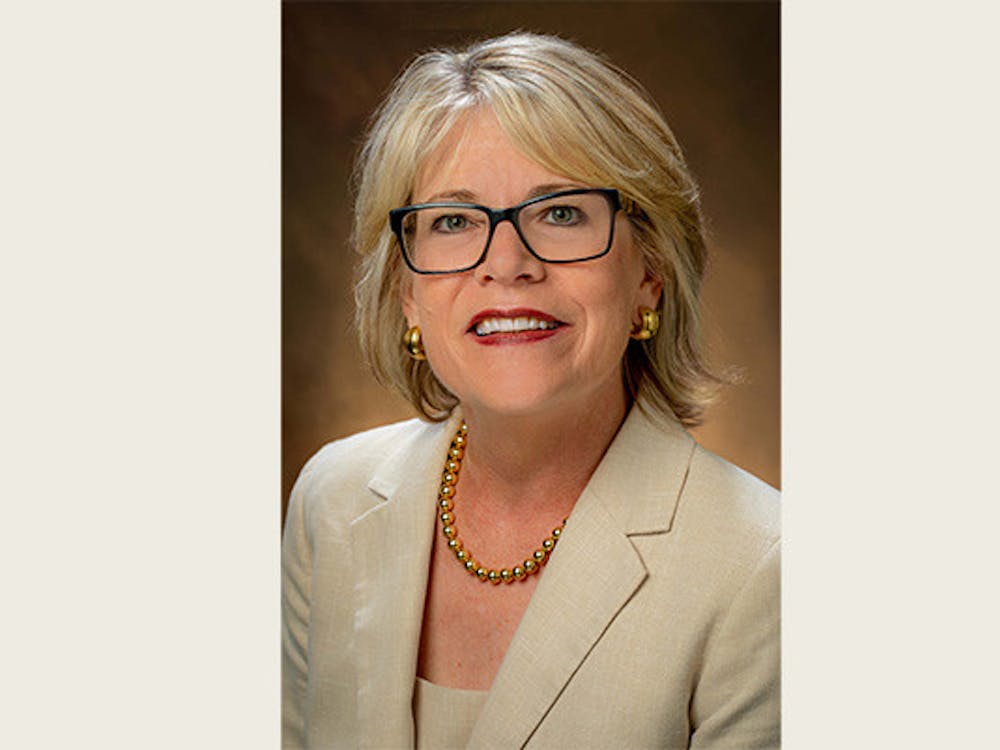Miami University is partnering with the Butler County Mental Health and Addiction Recovery Services Board (BCMHARS) to research the opioid crisis in southwest Ohio.
Butler County, along with Hamilton and Warren counties, has been named a recipient of grant money from the Comprehensive Addiction & Recovery Act (CARA). The legislation was signed into law in 2016, and the U.S. Department of Justice awarded the three southwest Ohio counties a collective $2.1 million in October.
Miami's research partnership with BCMHARS will focus on developing training for first responders, victim service providers and child protective service providers. The training will focus on meeting the needs of children found at the scenes of drug overdoses and those who have been impacted by drug abuse in their homes.
"One of the things about this particular project is that it's not just funding for opioid misuse," said Dawna "Cricket" Meehan, the director of the center for school-based mental health programs and an assistant professor in Miami's psychology department. "We know that a lot of these kids are negatively affected, and we need strategies to get them the help they need."
One of those strategies is creating a better communication infrastructure in the immediate aftermath of a drug overdose.
"Oftentimes, a child won't tell anyone if they've been put into child protective services after [a parent has] an overdose," Meehan said. "This funding will help bring better communication across the board so that, instead of them entering school the next day completely alone, they have people who know their situation and can provide them with support long term."
In the October funding, Butler County received $797,749 which, in addition to helping children surrounded by drug abuse, will go toward expanding overdose diversion and outreach efforts by municipal courts. Hamilton County received $500,000, and Warren was awarded $800,000.
From 2012 to 2017, Butler County had the third-highest rate among Ohio counties of drug overdose deaths per 100,000 people according to the Ohio Department of Health.
Senator Rob Portman (R-Cincinnati) introduced the CARA legislation in 2016 and lobbied the Justice Department on behalf of the three counties.
"I'm pleased that my CARA legislation is making a difference," Portman said in a press release on Oct. 18. "We need more partnerships between the federal government, state and local health officials, prevention experts, treatment providers, and law enforcement to work together to address this epidemic."
In September, the Senate passed comprehensive opioid legislation that included Portman's STOP Act (Synthetics Trafficking & Overdose Prevention), the CRIB (Caring Recovery for Infants & Babies) Act that was co-sponsored by Portman and Senator Sherrod Brown (D-Cleveland) and the CARA 2.0 Act.
This legislative package addresses issues including the shipment of opioids like fentanyl into the United States, treatment for babies and infants in drug withdrawal and additional funding for initiatives in the 2016 CARA legislation.
Enjoy what you're reading?
Signup for our newsletter
"There isn't a community in Ohio that hasn't been touched by the addiction crisis," Brown said in a press release on Sept. 18. "We are doing all we can to fight it, but we have to make it just as easy for Ohioans to seek treatment as it is to get opioids."
The partnership between the federal government and southwest Ohio provides a foundation in combating the epidemic, Meehan said, but there's still more awareness to be spread.
"The stereotype of what an addict is is being broken down by the opioid crisis because of how big it is and how many people it's affecting," Meehan said. "We need to understand the breadth of the epidemic in terms of what addiction is, who it affects including family members and friends, and then come together in a comprehensive way to combat the crisis."



